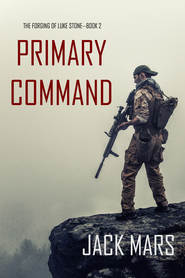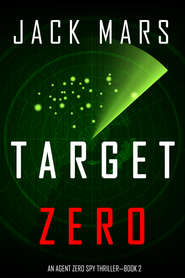По всем вопросам обращайтесь на: info@litportal.ru
(©) 2003-2025.
✖
President Elect
Настройки чтения
Размер шрифта
Высота строк
Поля
Marc was drying pint glasses that had just come out of the washer. “Steve-O, you’ve been on disability for twenty years.”
“I don’t mean bring my job back,” Steve-O said.
A few people laughed.
On the TV, an empty podium appeared. It was flanked by American flags.
“Ladies and gentlemen,” a hushed voice said, “the President of the United States.”
Susan Hopkins walked onto the stage from the right. She wore a tan pantsuit, her hair in a short blonde bob. Beautiful. Marc remembered her from her modeling days, in particular a certain Sports Illustrated swimsuit issue from twenty-five years ago. He had been middle-aged then, married with kids. There was something heartbreaking about her photo shoot – she was ethereal, unattainable, from another world. He didn’t have the words for what she was. And if anything, she looked even better now – more down to Earth, more mature. Marc liked a woman with a little mileage on her.
“Take it off, baby!” Steve-O said, eliciting some giggles from the others.
Marc had served Steve-O six shots and six beers in the past couple of hours. He’d say Steve-O was visibly intoxicated by now. And he was starting to pluck Marc’s nerves. “You’re about to get cut off, Steve-O.”
Steve-O looked at him. “What?”
“Shut up or go home. That’s what I’m saying.”
Marc turned back to the TV screen. Hopkins still hadn’t said anything yet. She seemed to be choking back some emotion. This was it, then. She was going to concede the election. She had seemed popular, but in the end she had been a one-term President – and not even a full term.
“My fellow Americans,” she said.
The bar was silent. The room where she spoke was almost silent – Marc could hear the whirr and click of cameras taking photos.
“I’m going to keep my remarks brief. This was a hard-fought campaign between two very different visions of America. One vision is of optimism, understanding, and pride for what we’ve accomplished as a nation. The other is a dark vision of anger, despair, resentment, and even paranoia. It sees our nation as a ruined landscape, which can only be saved by the efforts of one man. And it promises violence – violence against our most important trading partner, as well as violence against our own communities, our neighbors, and our friends.
“I’m sure you know which vision I embrace. I cannot accept a worldview based on racism, prejudice, and mistrust. And yet, despite my misgivings, under normal circumstances my task now would be to congratulate the apparent victor in this race, and welcome the President-elect, graciously preparing for the peaceful transfer of power that is a hallmark of our democracy.”
She paused. “But these are not normal circumstances.”
Marc stood up straight. He felt a tingle along his spine. He looked along the bar at the men lined up. Every single one of them was glued to the television now. Every one of them was suddenly alert, like animals before an approaching thunderstorm. What was she saying?
“My campaign has discovered evidence of Election Day irregularities in at least five states, including voter suppression, but also including outright tampering with and potential hacking of election machinery. We have reason to believe that the election was stolen, not just from our campaign, but from the American people. We have already contacted the FBI and the Justice Department about our concerns, and we look forward to a full, impartial investigation. Until such an investigation is completed – however long it takes – I cannot and will not recognize the results of this election, and I will continue to perform the duties of the President of the United States, carrying out my oath to protect and uphold the Constitution. Thank you.”
On the TV, President Hopkins moved to the right and off screen. There was a babble of voices as reporters shouted, competing with each other for her attention. Flashbulbs popped. The TV station switched to a different camera, one focused on the President as she was hustled out a side door behind a sea of very large Secret Service agents. She hadn’t taken a single question.
“What does that mean?” Steve-O said. “Can she do that?”
No one said a word.
Marc just kept drying pint glasses. He didn’t know the answer to that himself.
CHAPTER SIX
5:48 p.m. Eastern Standard Time
34th Floor
The Willard Intercontinental Hotel, Washington DC
“Are we a nation of laws?” the man shouted into the telephone.
He sat with his feet up on his wide desk of polished oak, gazing out the floor-to-ceiling window at the lights of the Capitol. It was dark out – the sun set early this time of year.
“That’s what I want to know. Because if we are a nation of laws, then that woman, the current occupant of the White House, needs to start packing her bags. She lost, and Jefferson Monroe won. Jefferson Monroe is the President-elect of the United States. And come inauguration day, if the current occupant is not out, we are going to evict her, like the sheriff evicting a deadbeat tenant.”
For a few seconds, the man paused, listening to the reporter on the other end of the line.
“Oh yeah, you can quote me. Print every word of it.”
He hung up the phone and slid it onto the desk. He checked his watch and breathed deeply. He had been on the phones with reporters for nearly an hour, ever since Susan Hopkins had run off the stage and darted out of the room at the end of her silly press conference.
The man’s name was Gerry O’Brien. At age fifty, he was very tall and rail thin. He was balding, and his face was all angles and jutting cliffs. He weighed the same as he had the day he graduated from college. He was a marathoner, a triathlete, and in recent years, he had gotten into doing mud runs and survival runs. Anything hard, anything tough, anything extreme where people dropped over sideways, or puked up their guts, or fell down a hill and tore open their knees, it had his name on it.
The son of Irish immigrants, he had come up on the streets of Woodside, Queens. His father was a prison guard. His mother was a maid. Hard people, and they raised him to be hard. You wanted to grow up in Woodside, you had to fight. Okay? He didn’t mind. He’d go toe to toe with anybody. He was so fierce, so remorseless, that kids in the neighborhood called him the Shark.
He was the first person in his family to go to college, and then – uncharted territory – law school. He made his first million before he was thirty, chasing ambulances – personal injury law.
He’d gotten a photo taken of himself looking very angry (and few people had the ability to look as angry as he could) and paid for small poster advertisements placed throughout the subway system.
Injured? You need somebody tough to stand up for your rights. A real lawyer. A real New Yorker. You need Gerry O’Brien. You need the Shark.
Almost instantly, he became Gerry the Shark. Everyone who rode the trains in the five boroughs knew the name. He used to ride the subways himself just to look at his own ads – and he hated the subways.
The more he made, the more ads he could afford. And the more ads he ran, the more he made. Soon he was running ads on late-night TV, then mid-afternoon TV. It was a jackpot. He had three lawyers working for him, then five, then ten. Then twenty. By the time he sold the business ten years ago, he had thirty-three lawyers and more than a hundred support staff.
He retired for a few years. Wandered. Drifted. Traveled the world. Did too many drugs. Drank too much. Did too much… of everything. Getting into radical right-wing politics probably saved his life. He had swapped out all the bad stuff for personal discipline and a vision of America that he discovered he shared with a lot of people – a return to an earlier, simpler time.
A time when the supremacy of white people wasn’t questioned. A time when marriage was between a man and a woman. A time when a young guy could walk out of high school at eighteen, walk into a factory job, and spend the rest of his working life there, making all the money he needed to support his family.
There was more to it, of course, a lot more. Darker things, things you needed a strong stomach for, things that were not for wider consumption. He had big plans. They were going to clean this country up, once and for all. But that wasn’t something you put right out there in public, was it? Not yet.
Gerry the Shark got up from his desk and moved through the suite of rooms. A few secretaries were here, but mostly people worked out of other places. Gerry was here not only because he was the head strategist, but also because he was the body man to the chief – he didn’t like to let the old man out of his sight.
They had flown up here from Louisville this afternoon. His boss owned this… what would you call it? An apartment? Sure, an apartment with ten bedrooms, twelve bathrooms, and half a dozen offices with a conference room and a staff dining area. It took up an entire floor in one of the most storied and most expensive hotels in the world. This hotel was where American history happened. This was where John F. Kennedy took his many afternoon trysts. This was the place.
They would spend the night here. They had important business here in DC early tomorrow morning.
Gerry breezed down a hallway, slapped his key card against a sensor, and passed into the living quarters. The front sitting room was furnished in opulent old-world style, like the drawing room in a Victorian mansion.
A man with white hair stood at a tall window, the curtains pulled aside. He stared out at the night. The man wore a three-piece suit despite the fact that he was home and had no intention of going out. The open-throated dress shirts were a shuck, of course. The man liked to play dress-up as much as anyone.
He held a martini in his hand. The martini glass looked tiny. The hands were the thing – despite the man’s elegant dress, and his obvious wealth, he had the big gnarled hands of someone who had grown up doing manual labor, and lots of it. The hands said: What’s wrong with this picture?
It was a raw night in the nation’s capital, and the wind howled outside the window, just a little bit. The old man stared out at the backdrop of the great urban sprawl and the lights of the city. Gerry knew that even after all these decades the country boy inside the old man was dazzled by city lights.
“How goes the war?” Jefferson Monroe, President-elect of the United States, said in his soft Southern lilt.
“I don’t mean bring my job back,” Steve-O said.
A few people laughed.
On the TV, an empty podium appeared. It was flanked by American flags.
“Ladies and gentlemen,” a hushed voice said, “the President of the United States.”
Susan Hopkins walked onto the stage from the right. She wore a tan pantsuit, her hair in a short blonde bob. Beautiful. Marc remembered her from her modeling days, in particular a certain Sports Illustrated swimsuit issue from twenty-five years ago. He had been middle-aged then, married with kids. There was something heartbreaking about her photo shoot – she was ethereal, unattainable, from another world. He didn’t have the words for what she was. And if anything, she looked even better now – more down to Earth, more mature. Marc liked a woman with a little mileage on her.
“Take it off, baby!” Steve-O said, eliciting some giggles from the others.
Marc had served Steve-O six shots and six beers in the past couple of hours. He’d say Steve-O was visibly intoxicated by now. And he was starting to pluck Marc’s nerves. “You’re about to get cut off, Steve-O.”
Steve-O looked at him. “What?”
“Shut up or go home. That’s what I’m saying.”
Marc turned back to the TV screen. Hopkins still hadn’t said anything yet. She seemed to be choking back some emotion. This was it, then. She was going to concede the election. She had seemed popular, but in the end she had been a one-term President – and not even a full term.
“My fellow Americans,” she said.
The bar was silent. The room where she spoke was almost silent – Marc could hear the whirr and click of cameras taking photos.
“I’m going to keep my remarks brief. This was a hard-fought campaign between two very different visions of America. One vision is of optimism, understanding, and pride for what we’ve accomplished as a nation. The other is a dark vision of anger, despair, resentment, and even paranoia. It sees our nation as a ruined landscape, which can only be saved by the efforts of one man. And it promises violence – violence against our most important trading partner, as well as violence against our own communities, our neighbors, and our friends.
“I’m sure you know which vision I embrace. I cannot accept a worldview based on racism, prejudice, and mistrust. And yet, despite my misgivings, under normal circumstances my task now would be to congratulate the apparent victor in this race, and welcome the President-elect, graciously preparing for the peaceful transfer of power that is a hallmark of our democracy.”
She paused. “But these are not normal circumstances.”
Marc stood up straight. He felt a tingle along his spine. He looked along the bar at the men lined up. Every single one of them was glued to the television now. Every one of them was suddenly alert, like animals before an approaching thunderstorm. What was she saying?
“My campaign has discovered evidence of Election Day irregularities in at least five states, including voter suppression, but also including outright tampering with and potential hacking of election machinery. We have reason to believe that the election was stolen, not just from our campaign, but from the American people. We have already contacted the FBI and the Justice Department about our concerns, and we look forward to a full, impartial investigation. Until such an investigation is completed – however long it takes – I cannot and will not recognize the results of this election, and I will continue to perform the duties of the President of the United States, carrying out my oath to protect and uphold the Constitution. Thank you.”
On the TV, President Hopkins moved to the right and off screen. There was a babble of voices as reporters shouted, competing with each other for her attention. Flashbulbs popped. The TV station switched to a different camera, one focused on the President as she was hustled out a side door behind a sea of very large Secret Service agents. She hadn’t taken a single question.
“What does that mean?” Steve-O said. “Can she do that?”
No one said a word.
Marc just kept drying pint glasses. He didn’t know the answer to that himself.
CHAPTER SIX
5:48 p.m. Eastern Standard Time
34th Floor
The Willard Intercontinental Hotel, Washington DC
“Are we a nation of laws?” the man shouted into the telephone.
He sat with his feet up on his wide desk of polished oak, gazing out the floor-to-ceiling window at the lights of the Capitol. It was dark out – the sun set early this time of year.
“That’s what I want to know. Because if we are a nation of laws, then that woman, the current occupant of the White House, needs to start packing her bags. She lost, and Jefferson Monroe won. Jefferson Monroe is the President-elect of the United States. And come inauguration day, if the current occupant is not out, we are going to evict her, like the sheriff evicting a deadbeat tenant.”
For a few seconds, the man paused, listening to the reporter on the other end of the line.
“Oh yeah, you can quote me. Print every word of it.”
He hung up the phone and slid it onto the desk. He checked his watch and breathed deeply. He had been on the phones with reporters for nearly an hour, ever since Susan Hopkins had run off the stage and darted out of the room at the end of her silly press conference.
The man’s name was Gerry O’Brien. At age fifty, he was very tall and rail thin. He was balding, and his face was all angles and jutting cliffs. He weighed the same as he had the day he graduated from college. He was a marathoner, a triathlete, and in recent years, he had gotten into doing mud runs and survival runs. Anything hard, anything tough, anything extreme where people dropped over sideways, or puked up their guts, or fell down a hill and tore open their knees, it had his name on it.
The son of Irish immigrants, he had come up on the streets of Woodside, Queens. His father was a prison guard. His mother was a maid. Hard people, and they raised him to be hard. You wanted to grow up in Woodside, you had to fight. Okay? He didn’t mind. He’d go toe to toe with anybody. He was so fierce, so remorseless, that kids in the neighborhood called him the Shark.
He was the first person in his family to go to college, and then – uncharted territory – law school. He made his first million before he was thirty, chasing ambulances – personal injury law.
He’d gotten a photo taken of himself looking very angry (and few people had the ability to look as angry as he could) and paid for small poster advertisements placed throughout the subway system.
Injured? You need somebody tough to stand up for your rights. A real lawyer. A real New Yorker. You need Gerry O’Brien. You need the Shark.
Almost instantly, he became Gerry the Shark. Everyone who rode the trains in the five boroughs knew the name. He used to ride the subways himself just to look at his own ads – and he hated the subways.
The more he made, the more ads he could afford. And the more ads he ran, the more he made. Soon he was running ads on late-night TV, then mid-afternoon TV. It was a jackpot. He had three lawyers working for him, then five, then ten. Then twenty. By the time he sold the business ten years ago, he had thirty-three lawyers and more than a hundred support staff.
He retired for a few years. Wandered. Drifted. Traveled the world. Did too many drugs. Drank too much. Did too much… of everything. Getting into radical right-wing politics probably saved his life. He had swapped out all the bad stuff for personal discipline and a vision of America that he discovered he shared with a lot of people – a return to an earlier, simpler time.
A time when the supremacy of white people wasn’t questioned. A time when marriage was between a man and a woman. A time when a young guy could walk out of high school at eighteen, walk into a factory job, and spend the rest of his working life there, making all the money he needed to support his family.
There was more to it, of course, a lot more. Darker things, things you needed a strong stomach for, things that were not for wider consumption. He had big plans. They were going to clean this country up, once and for all. But that wasn’t something you put right out there in public, was it? Not yet.
Gerry the Shark got up from his desk and moved through the suite of rooms. A few secretaries were here, but mostly people worked out of other places. Gerry was here not only because he was the head strategist, but also because he was the body man to the chief – he didn’t like to let the old man out of his sight.
They had flown up here from Louisville this afternoon. His boss owned this… what would you call it? An apartment? Sure, an apartment with ten bedrooms, twelve bathrooms, and half a dozen offices with a conference room and a staff dining area. It took up an entire floor in one of the most storied and most expensive hotels in the world. This hotel was where American history happened. This was where John F. Kennedy took his many afternoon trysts. This was the place.
They would spend the night here. They had important business here in DC early tomorrow morning.
Gerry breezed down a hallway, slapped his key card against a sensor, and passed into the living quarters. The front sitting room was furnished in opulent old-world style, like the drawing room in a Victorian mansion.
A man with white hair stood at a tall window, the curtains pulled aside. He stared out at the night. The man wore a three-piece suit despite the fact that he was home and had no intention of going out. The open-throated dress shirts were a shuck, of course. The man liked to play dress-up as much as anyone.
He held a martini in his hand. The martini glass looked tiny. The hands were the thing – despite the man’s elegant dress, and his obvious wealth, he had the big gnarled hands of someone who had grown up doing manual labor, and lots of it. The hands said: What’s wrong with this picture?
It was a raw night in the nation’s capital, and the wind howled outside the window, just a little bit. The old man stared out at the backdrop of the great urban sprawl and the lights of the city. Gerry knew that even after all these decades the country boy inside the old man was dazzled by city lights.
“How goes the war?” Jefferson Monroe, President-elect of the United States, said in his soft Southern lilt.











